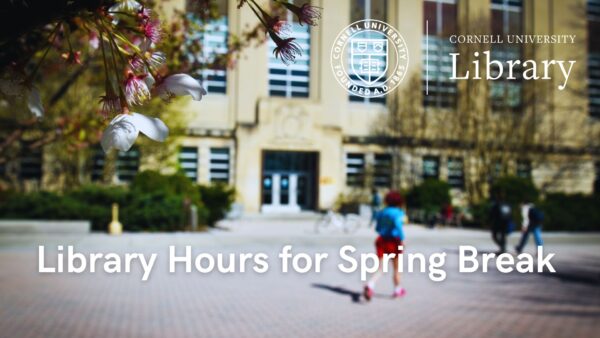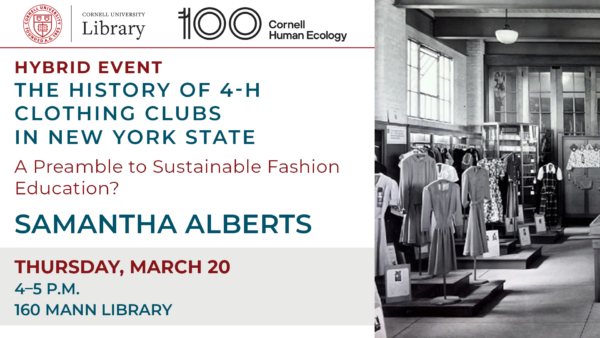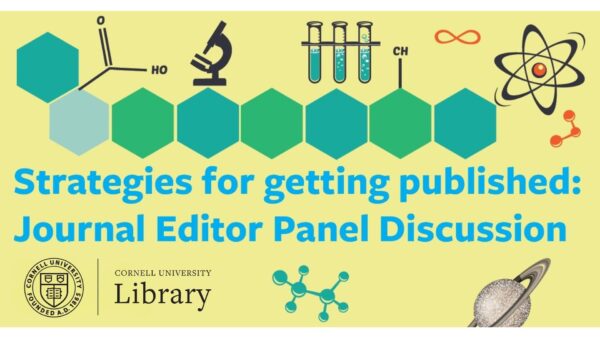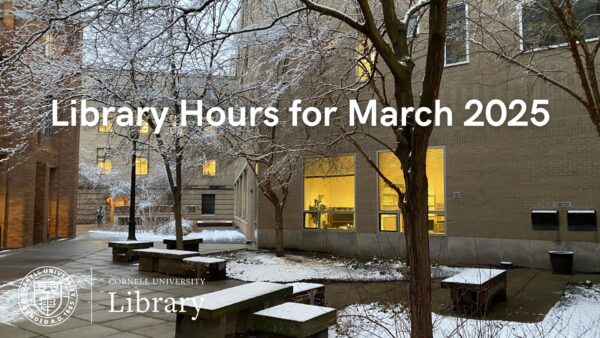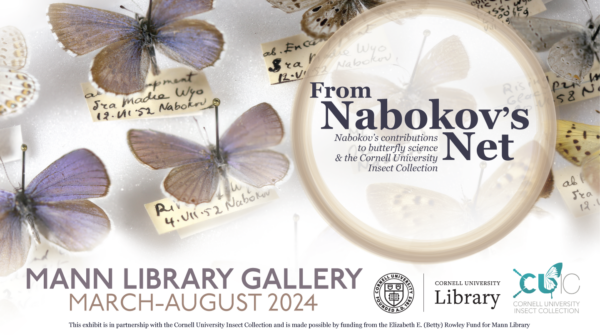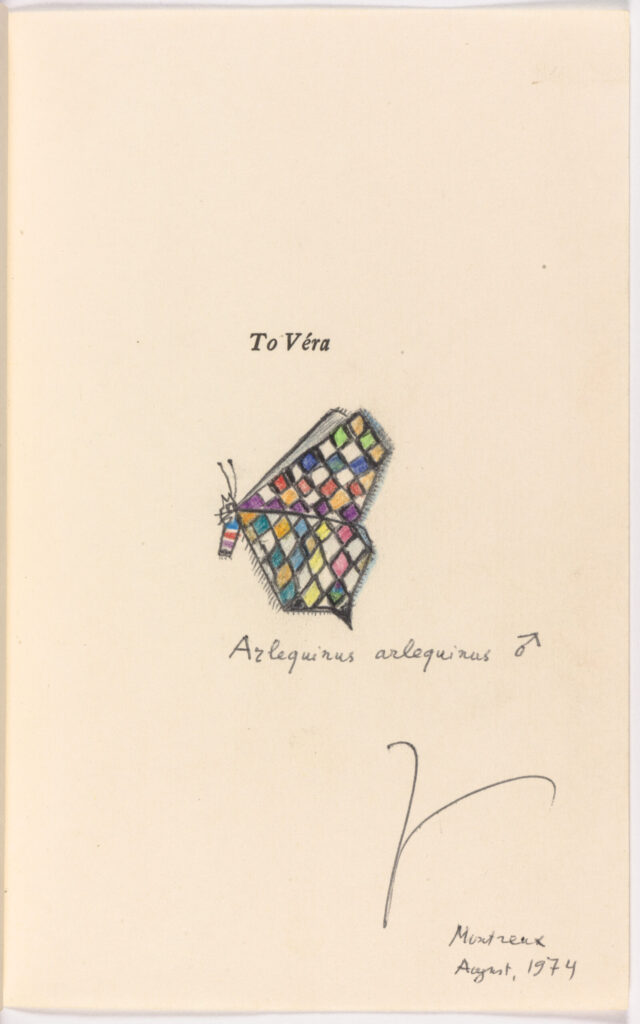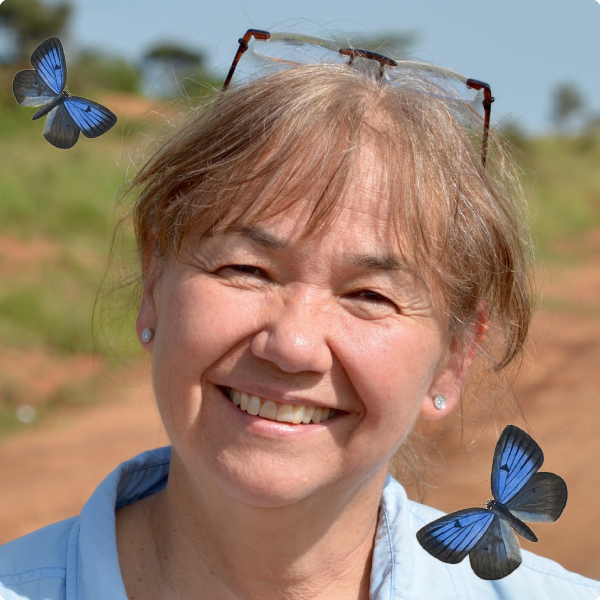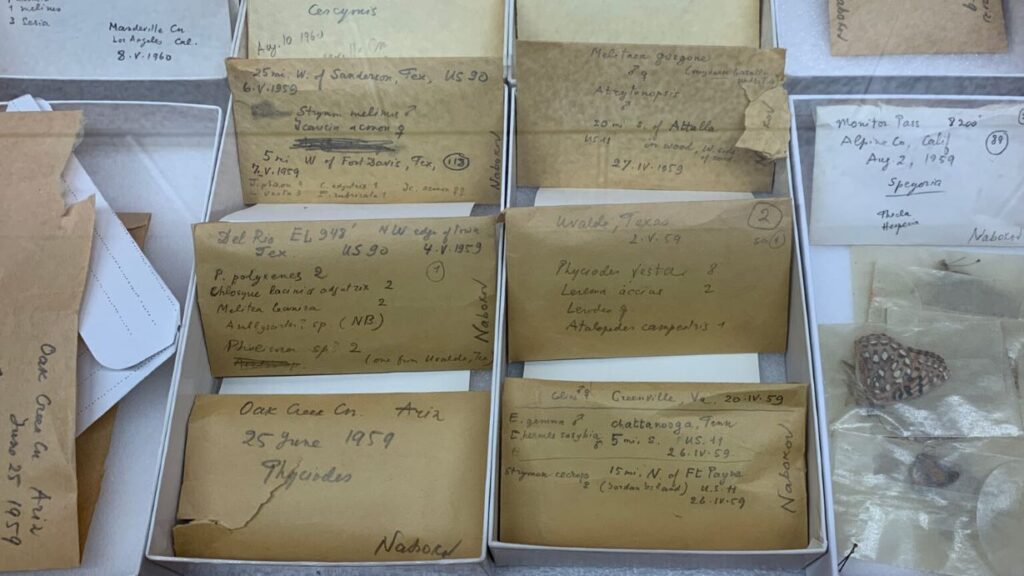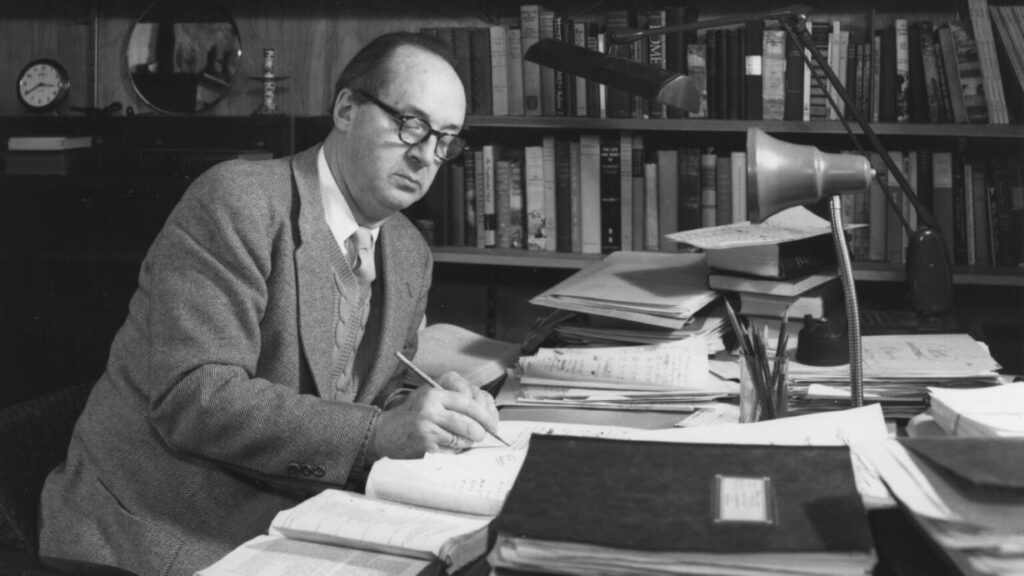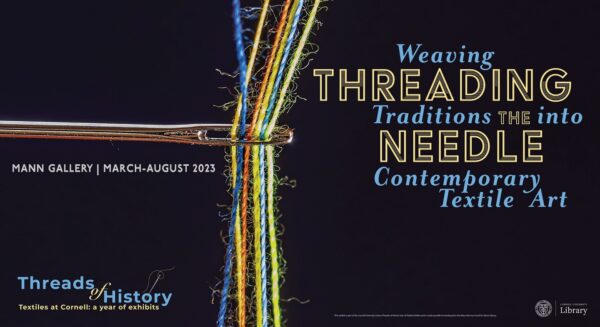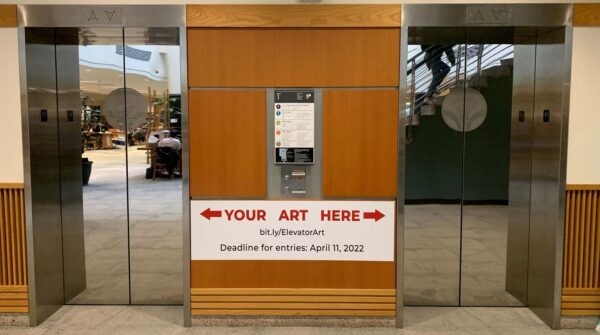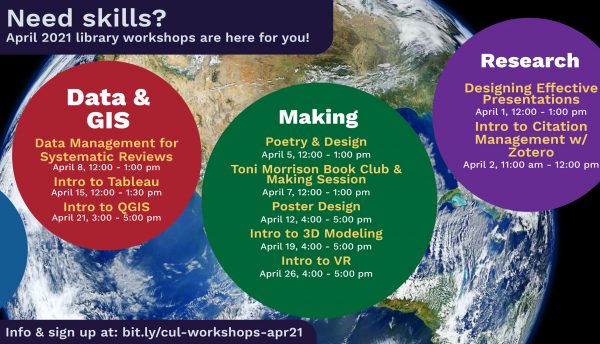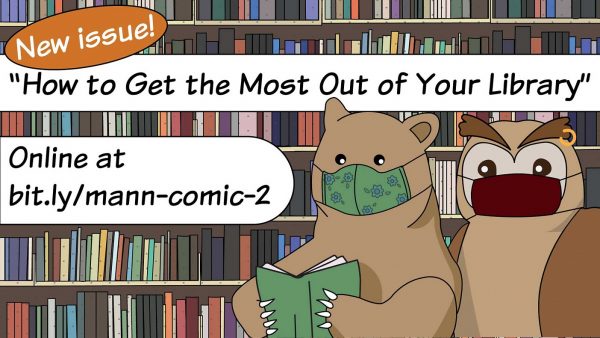It’s almost spring break, and we know everyone is probably looking forward to some much needed rest and relaxation! If you are traveling for the break, we wish you safe travels and hope that your time away is restorative. If you’re staying local and choose to spend any part of your break at Mann Library, please note that we will have adjusted hours from Friday, March 28 – Sunday, April 6.
- Friday, March 28, 8am to 5pm
- Saturday, March 29, 1 to 5pm
- Sunday, March 30, CLOSED
- Monday, March 31 – Friday, April 4, 8am to 5pm
- Saturday, April 5, 1-5pm
- Sunday, April 6, 12-6pm
We will return to our semester hours on Monday, April 7. You can always find our most up-to-date hours information on our hours page: mann.library.cornell.edu/full-hours. And you can find hours for all campus library locations on the Cornell University Library site: library.cornell.edu/libraries/
